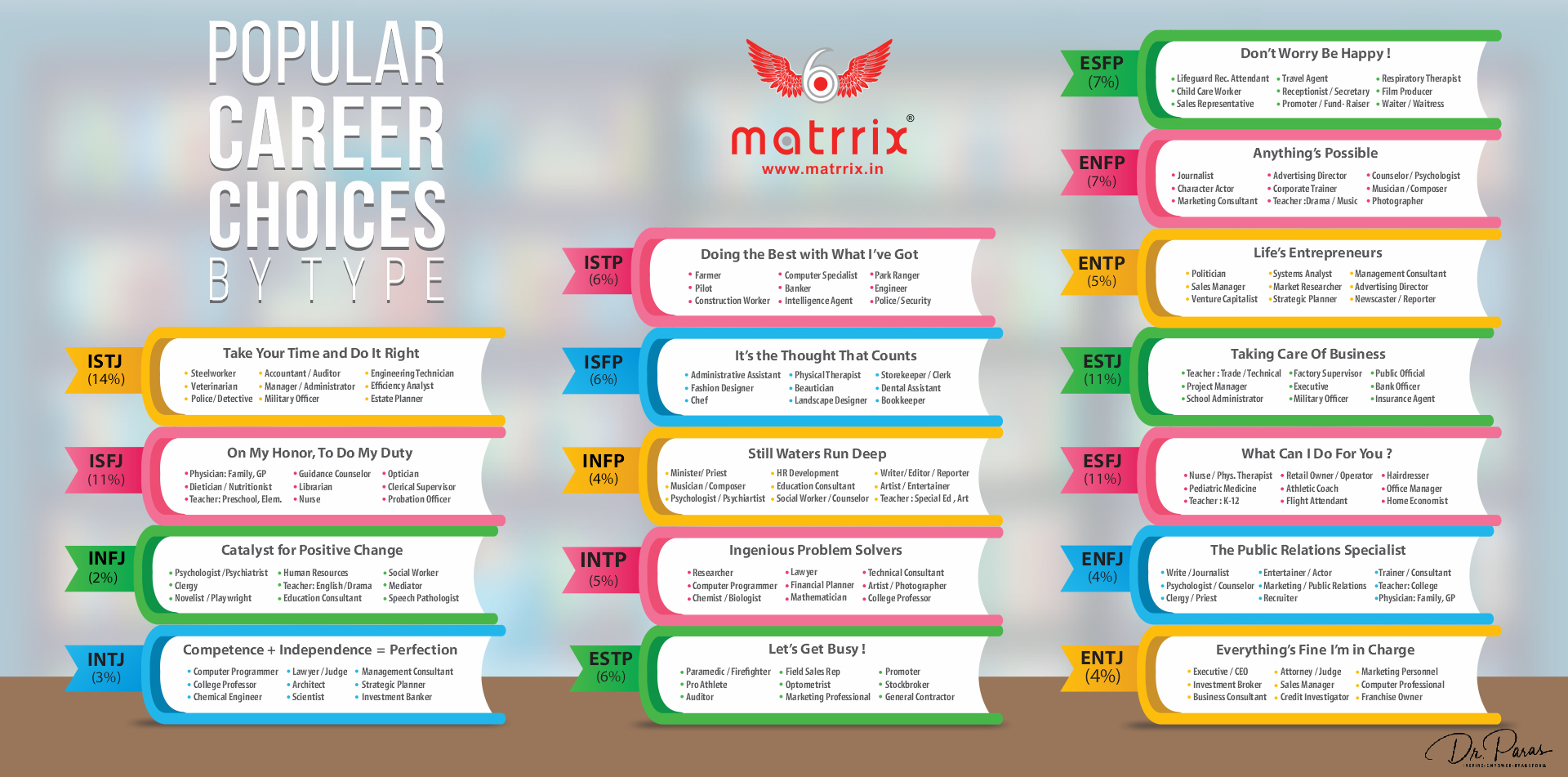Swiss psychologist Carl Jung is known the world over for his influential work in the areas of psychiatry, literature, and many others. His influence on modern psychology is evident with Carl Jung’s assessments being most in demand in all professions. Jung’s theory of personality and personality types is known the world over making the Carl Jung’s personality test an in-demand amongst corporates looking to hire top-notch talents for a strong workforce.
Carl Jung’s personality theory includes some key factors that determine details about a person’s behavior style. So, what makes the Carl Jung assessment an important test in today’s time? We, at Matrrix, will tell you the details.
Understanding Carl Jung’s Personality Assessment
Carl Jung’s personality theory outlines 2 main attitude differences between people. He emphasized that people display two behavior types -
a. Introverts (I)
b. Extroverts (E)
His theory further outlined that such people may show their preferences in relation to the above personality type -
a. Sensing (S)
b. Intuition (N)
Carl Jung’s theory also mentioned that people also show a preference to the way they judge and handle situations in life.
a. Thinking (T)
b. Feeling (F)
Jung’s theory of personality types mentioned that people often use the functions of sensation/ intuition, feeling/thinking with one being dominant in a person’s behavioral style.
This Carl Jung personality test is designed to help you understand your general preference and attitude towards challenges in life.
Benefits of the Matrrix Carl Jung Personality Test
This Carl Jung personality test is designed to help you understand your general preference and attitude towards challenges in life. By knowing your personality type, you gain a strong understanding of your behavior to modify where needed and create successful results in life. Each question is directed towards knowing how you respond to situations in daily life. You learn to turn these insights into actions.

Carl Jung’s Personality Types
There are 16 personality types which you will know once you try the Matrrix Carl Jung Personality Test. These are based on the following cognitive learning styles.
1. Extraversion V/s Introversion
This type of preference is about the direction of a person’s energy. It can either be towards the outside or within.
a. Extraversion (E)
This indicates your levels of connection with the outer world. It measures how well you draw your energy from sources outside. Extraverts are energetic in social gatherings, enthusiastic, expressive, and approachable people.
b. Introversion (I)
This personality type is about sourcing energy from one’s internal world and having a reflective practice. Introverts source their energy from their internal world by spending time with self. They are known to be internally aware, independent, display preference for smaller groups, and enjoy solitude.
2. Sensing V/s Intuition
An individual may use either Sensing or Intuition in the way they receive or understand new information.
a. Sensing (S)
People who display Sensing often focus on the present and are able to view things from a realistic point of view. Such a personality type relies on facts and is aware of them, is detailed-oriented, and realistic in approach.
b. Intuition (N)
A person who displays Intuition in their personality type has a different way of processing information. They are the types who see the world through various angles and are inspired and imaginative by nature. They are the type to seek depth in whatever they do, innovate, look towards the big picture, and be idealistic in their approach.
3. Thinking V/s Feeling
This preference pair is about how an individual makes a decision. An individual may show preference for one’s principles and facts (Thinking) or may show inclination towards what one feels in the heart based on Feelings.
a. Thinking (T)
A person who uses Thinking to make decisions is the one to base it on logical thinking, and is often viewed as being task-oriented in approach. Individuals who display this style may often be looked at as uncaring as they are critical thinkers and may be considered as unemotional.
b. Feeling (F)
A person who uses Feeling considers the opinions of others in their decision-making process. They display concern for all, appear as compassionate, are warm in their approach and are quite driven by emotion.
Carl Jung’s personality theory includes some key factors that determine details about a person’s behaviour style.
4. Judgment V/s Perception
This preference type reflects an individual’s manner of interaction with the situations around. A person may use a scheduled approach to tasks or may display flexibility.
a. Judgment (J)
A person who belongs to this category is organized and structured while planning their life. They are the ones who work as per schedule and enjoy task completion while being work-oriented in their approach. They are considered to be organized, planning-oriented, decisive, and controlled in their behavior.
b. Perception (P)
A person in this type would be flexible to improvise and find alternative options. They are considered to always keep their options open while being spontaneous in their approach. They are adaptable to different situations, relaxed, known to toy with different ideas, and often dislike a routine.
A combination of 16 Personality Types have been devised as a part of the Carl Jung Personality Assessment based on the above 4 cognitive learning styles.
Carl Jung’s 16 Personality Types
By answering the 100+ questions of the Matrrix Carl Jung Personality Test, you will get the analysis that will indicate the above 16 personality types. You will learn your personality type, the characteristics associated with it, how you see the world, how others perceive you, and more. You will be able to identify the areas of growth required.
The Matrrix Carl Jung personality test is based on Carl Jung’s personality theory. It is suitable for all professionals, students, and homemakers. There is no right or wrong answer. You have to select an answer that is closest to your choice. None of the answers are final and binding. The analysis is mailed to your registered email ID. You can always work around your behavior style to bring the desired changes.
So, what are you waiting for? Click here to begin the Matrrix Carl Jung Personality Test. Questions? Write to [email protected].

